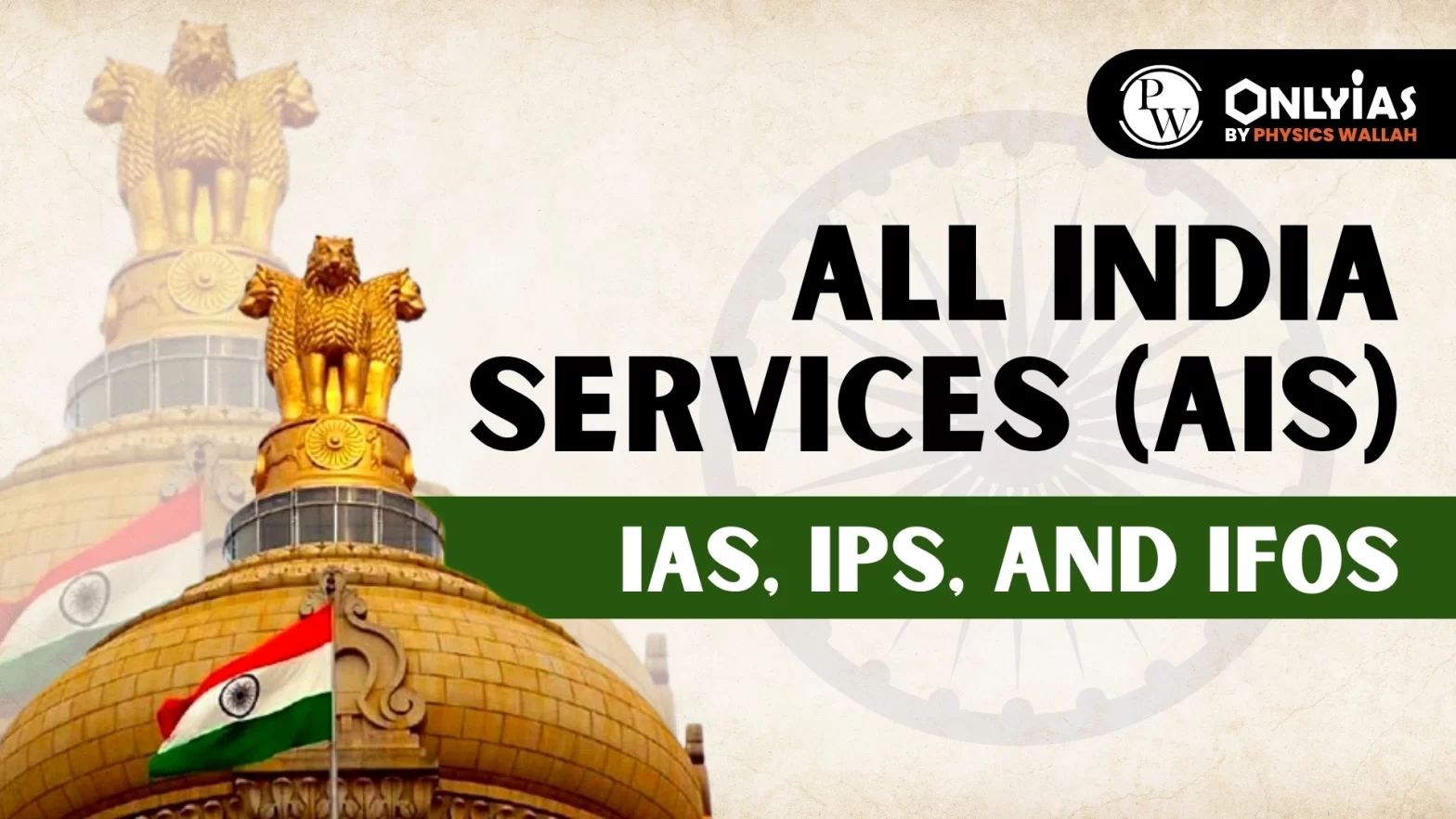All India Services (IAS, IPS, IFS) play a crucial role in India's governance, law enforcement, and conservation. Administered by UPSC, these services contribute to policy-making, public safety, and environmental stewardship, shaping the nation's progress.

All India Services (AIS) encompass three civil services in India that are shared between the central and state governments. These services include
Civil servants recruited through the All India Services by the central government are allocated to various state government cadres, and some may also serve the central government on deputation at later stages in their careers. All officers belonging to these three services adhere to the All India Services Rules, governing aspects such as pay, conduct, leave, and various allowances.
The All India Services Act of 1951 allows for the creation of two additional All India Services, namely, the Indian Service of Engineers and the Indian Medical and Health Service.
The Cadre Controlling Authority for all three All India Services is the central government. Regarding promotion regulations, the Ministry of Personnel, Public Grievances, and Pensions is the authority for IAS, the Ministry of Home Affairs is the authority for IPS, and the Ministry of Environment, Forest and Climate Change holds authority for IFS/IFoS. Recruitment for these services is conducted by the Union Public Service Commission (UPSC) through the annual Civil Services Examination for IAS and IPS, and the Forest Service Examination for IFS/IFoS. Since 2012, the preliminary tests for these two examinations have been combined.
The All India Services (AIS) consist of three prestigious civil services in India: the Indian Administrative Service (IAS), the Indian Police Service (IPS), and the Indian Forest Service (IFS). These services are unique because officers recruited by the central government are allotted to various state cadres but serve both the Union and state governments. The All India Services Act, 1951 governs their recruitment and service conditions, ensuring a unified administration across India. These services play a key role in policy implementation, law enforcement, and forest management throughout the country.
The All India Services Act, 1951 was enacted to regulate the recruitment and conditions of service of persons appointed to the All India Services common to both the Union and the States. The Act empowers the Central Government to make rules for recruitment and service conditions after consulting the concerned State Governments. It provides a unified framework for managing services such as the IAS, IPS, and Indian Forest Service (IFS), ensuring coordination between the Union and state administrations. The Act allows for the creation of new All India Services and ensures the continuation of existing rules until new ones are framed. It is a key legislation that governs the functioning and structure of the All India Services in India.
| Must Read | |
| NCERT Notes For UPSC | UPSC Daily Current Affairs |
| UPSC Blogs | UPSC Daily Editorials |
| Daily Current Affairs Quiz | Daily Main Answer Writing |
| UPSC Mains Previous Year Papers | UPSC Test Series |
The All India Services (AIS) consist of three civil services: the Indian Administrative Service (IAS), the Indian Police Service (IPS), and the Indian Forest Service (IFS). These services are jointly administered by the central and state governments.
The responsibility for appointing officers to the All India Services lies with the Union Public Service Commission (UPSC).
The central government serves as the Cadre Controlling Authority for all three All India Services. It oversees various aspects, including the allocation of officers to state government cadres, promotions, and other administrative functions.
The All India Services Act of 1951 allows for the creation of two additional All India Services: the Indian Service of Engineers and the Indian Medical and Health Service.
<div class="new-fform">
</div>